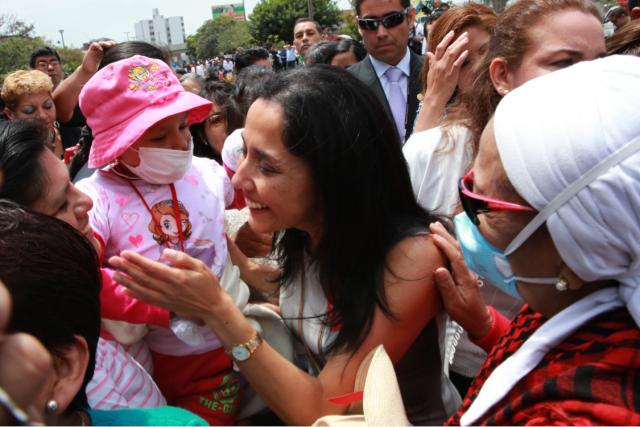One of Chile’s biggest department stores, Falabella, recently launched an advertising campaign for Mother’s Day. The post on Instagram featured a collage of different women posing with children, but one model in particular has been the subject of widespread debate.
Marianne Painelli, an Italian-Cuban model who features in the advert, has been the victim of negative reactions from social media users, with many claiming that she is not representative of Chilean mothers.
The hashtag #FalabellaAntichilenas has been trending on X, under which users have been sharing their objections to the advert.
One user wrote on X: “The new Falabella campaign is appalling. They present a stereotype of women that’s completely out of step with Chilean reality. I don’t understand why they’re trying to impose an image that doesn’t represent us. Forced and disconnected advertising #Chile #Antofagasta.”
Another wrote: “FALABELLA DOES NOT REPRESENT CHILEAN GRANDMOTHERS, WE ARE NOT A CARIBBEAN RACE, MAPUCHES YES, NOT ABORIGINES, MUCH LESS A GUY IN A DRESS. FALABELLA DISCRIMINATES AGAINST CHILEAN WOMEN.”
These comments were met with criticism, also voiced via social media platforms.
Genesis Lagos, a Chilean influencer, posted a TikTok arguing that those claiming “Chilean mothers do not look like this” did not take issue with previous campaigns that have featured women with Eurocentric features. The video now has 182.5k likes.
An article from the University of Chile agrees, pointing out that Argentine supermodel Valeria Mazza was the face of many Falabella campaigns throughout the past two decades. Mazza is fair skinned and blonde, but the post argues this was not met with any scrutiny about representation of Chilean features.
This, however, is not the first time the Falabella has faced controversy related to racial representation. In 2014 the department store was the topic of another debate when the Peruvian subsidiary of the store apologized for publishing a Christmas catalog that exclusively featured blonde and white-skinned girls.
At the time, their Facebook comments section was filled with complaints against the advertisement for being full of European-looking models that did not reflect Peru’s ethnic diversity.
But others feel this case regarding Minelli is different because it stems from a specific mistreatment of Black men and women within Chilean society.
Latin America Reports spoke with Javier Núñez Morales, a lawyer representing the think tank CIJYS. He believes the controversy reflects a historic discrimination against Black people in Chile.
“Even if we want to deny it as a society, this reaction [to the advert] stems from a mix of racism, classism, and aporophobia (prejudice against the poor),” he explained via WhatsApp.
He added that this racism has roots that reach back to colonial times, as people still have not “fully removed themselves” from ideas that promoted “European standards of success, power, and beauty.”
“According to the mentality of this generation of Chileans, still mentally colonized, being Black or brown is synonymous with poverty, crime, ugliness, and dirtiness.”
Since 2021, the UN has expressed concern about “violence and xenophobia” in Chile, which has increased further following the sharp rise in undocumented foreigners arriving in the South American country.
The government has taken steps to counteract this discrimination. In 2019, the government promulgated Law 21.151, which recognizes Afro-descendants as tribal people in Chile. President Gabriel Boric has also previously taken to X to express his sympathies with persecuted ethnic communities in his country.
But Núñez believes the State is in part responsible for perpetuating the racism that has contributed to this debate. CIJYS has repeatedly called for an end to what they call ‘institutional racism against people of African descent’ in the country.
“No government is truly interested in combating racism. Beyond a few ad campaigns, what the State should guarantee first and foremost is that its institutions don’t act with racism.”
He told us that CIJYS is representing many Black Chileans who claim to have faced mistreatment of Black at the hands of the state.
“We have shameful examples of what happens in the Family Courts and the over-institutionalization of Black children, arguing that their parents are naturally violent or incapable of raising them, without even listening to the families or understanding other cultures’ parenting methods.”
Núñez also described how CIJYS have received “hundreds of reports of obstetric violence and non-consensual sterilisations, especially targeting Black and Haitian women.”
CIJYS’ sentiment that the outcry at the advert is symptomatic of endemic racism in Chilean society was echoed by Afrofeminas, an anti-racist media outlet based in Spain.
The editorial team released an article about the Falabella controversy, stating the debate has exposed “deeply rooted racism in Chilean society” and that “this racism manifests itself in the lack of representation in the media, education, and public policies, and in the perpetuation of stereotypes that associate Blackness with foreignness or marginalization.”
“The reaction generated by Falabella’s campaign is a signal to confront and eradicate racism in Chile. It’s time for the country to embrace its diversity and recognize the richness that all its communities contribute,” they concluded.
Latin America Reports has reached out to Falabella for comment.
Featured image: Screenshot of Falabella’s Mother’s Day ad campaign via falabella_cl on Instagram.











